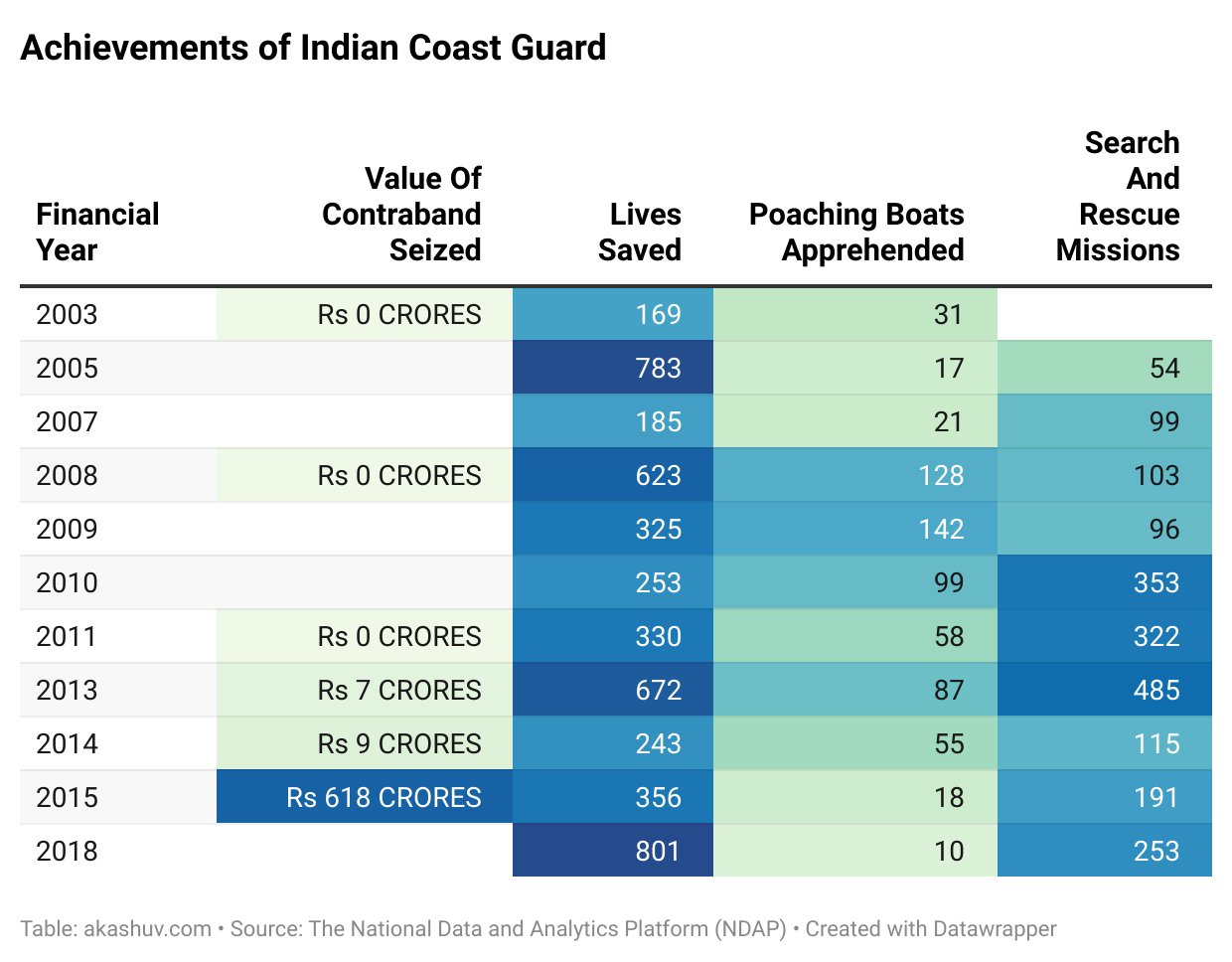Ginger Tea: A Natural Remedy for Period Bloating – An Indian Youth’s Guide
Menstrual cycles can be challenging, with cramps, mood swings, and the infamous bloating making it hard to function at your best.
If you’re an Indian youth juggling studies, work, and social commitments, the added discomfort of period bloating can feel like an unwelcome guest. But what if the solution lies in your kitchen?
According to age-old wisdom—something our mothers have always known—ginger tea is a simple, effective remedy for easing period bloating.
This blog delves into why ginger tea is a go-to solution for menstrual bloating and how it aligns with the lifestyle of Indian youth. Let’s explore how this golden elixir can make your period days a little easier.
Understanding Period Bloating
Period bloating occurs due to hormonal fluctuations, particularly increased levels of estrogen and progesterone. These hormones cause water retention, which leads to a feeling of puffiness or tightness, especially around the abdomen.
While bloating is a normal part of the menstrual cycle, it can be uncomfortable and frustrating.
Why Do Indian Youth Face More Challenges?
As a young Indian, you may already have a hectic lifestyle, balancing academics, work, or other responsibilities. Add to this the cultural expectations and dietary habits that sometimes lean heavily on processed foods, salt, or caffeine—all of which can exacerbate bloating.
Furthermore, in many Indian households, discussing menstruation with male family members is still considered taboo. Some deeply ingrained cultural practices also restrict women during their menstrual cycle, such as not allowing them to enter the kitchen or sleep in a proper bed.
These emotionally distressing practices can, in turn, cause stress, leading to the release of cortisol, a stress hormone that worsens physical discomfort, including bloating.
This is where natural remedies like ginger tea can make a significant difference.
Why Ginger Tea Works Wonders for Period Bloating
1. Anti-inflammatory Properties
Ginger contains powerful anti-inflammatory compounds called gingerols and shogaols. These help reduce the inflammation in the gut, relieving bloating and soothing abdominal discomfort.
2. Promotes Digestive Health
Bloating often stems from digestive issues like slow metabolism or gas buildup. Ginger tea stimulates the digestive enzymes, aiding in faster digestion and reducing gas.
3. Diuretic Effect
Ginger tea has mild diuretic properties that help flush out excess water from the body, reducing water retention and puffiness.
4. Hormonal Balance
Ginger may also play a role in regulating hormones, helping reduce the severity of period symptoms, including bloating, cramps, and mood swings.
5. Warmth and Comfort
A hot cup of ginger tea provides warmth and relaxation, which can ease period discomfort and elevate your mood during challenging days.
Ginger Tea for Period Bloating: Step-by-Step Approach with External Resources
Here’s how you can implement ginger tea as a remedy for period bloating, broken down into actionable steps. Additionally, external links provide deeper insights and credibility.
Step 1: Understand the Science Behind Ginger and Menstrual Health
Before diving into remedies, it’s helpful to understand why ginger is effective for bloating and menstrual discomfort. Research confirms its anti-inflammatory, digestive, and hormone-regulating properties.
External Resources:
Step 2: Gather Ingredients
Head to your kitchen or a local grocery store to gather the following ingredients:
- Fresh ginger root
- Water
- Optional: honey, lemon, or additional spices like cardamom
External Resources:
- BBC Good Food: Why Fresh Ginger Is Better Than Powder
- Times of India: Ginger Benefits in Indian Cooking
Step 3: Prepare Ginger Tea
Follow this quick recipe:
- Boil 2 cups of water in a pan.
- Grate or thinly slice 1-2 inches of fresh ginger.
- Add the ginger to the boiling water and let it simmer for 5-7 minutes.
- Strain the tea into a cup.
- Add a teaspoon of honey or a squeeze of lemon for extra flavor.
External Resources:
Step 4: Drink Responsibly
Consume ginger tea once or twice a day during your menstrual cycle. Avoid drinking excessive amounts, as it can lead to acidity or heartburn in some individuals.
External Resources:
Step 5: Pair Ginger Tea with Lifestyle Adjustments
For maximum relief, complement ginger tea with:
- Hydration: Drink at least 2-3 liters of water daily.
- Diet: Include fiber-rich foods and avoid salty snacks.
- Light Exercise: Try yoga or gentle stretching exercises.
External Resources:
Step 6: Monitor the Results
Keep track of how ginger tea affects your period symptoms over a few cycles. If the bloating significantly reduces, incorporate it into your routine. However, if symptoms persist, consult a healthcare provider.
External Resources:
- WebMD: When to See a Doctor for Menstrual Symptoms
- National Library of Medicine: Gut Health and Hormonal Cycles

Quick Overview of the Steps to Use Ginger Tea for Period Bloating
- Understand the Science Behind Ginger
Ginger’s anti-inflammatory and digestive properties make it effective for easing period bloating. Its ability to regulate hormones also helps reduce discomfort during your menstrual cycle. - Gather the Ingredients
You’ll need fresh ginger root, water, and optional ingredients like honey, lemon, or cardamom for added flavor. - Prepare Ginger Tea
Boil 2 cups of water, add grated or sliced ginger, and let it simmer for 5-7 minutes. Strain into a cup and add honey or lemon if desired. - Drink Responsibly
Drink ginger tea once or twice a day during your period, but avoid overconsumption to prevent acidity or heartburn. - Pair with Lifestyle Adjustments
Stay hydrated, eat fiber-rich foods, and engage in light exercise like yoga to enhance the effectiveness of ginger tea in reducing bloating. - Monitor the Results
Track how your symptoms change over a few cycles. If bloating decreases, continue using ginger tea. If symptoms persist, consult a healthcare provider.
By following these simple steps, you can naturally manage period bloating and stay connected to time-tested, culturally rooted remedies.
When and How Often Should You Drink Ginger Tea?
For best results, drink ginger tea:
- 1-2 times a day during your menstrual cycle, especially when bloating is at its peak.
- First thing in the morning on an empty stomach or in the evening for a calming effect.
Avoid overconsumption, as too much ginger can sometimes cause heartburn or acidity.
The Cultural Connection: Wisdom Passed Down
In Indian households, natural remedies like ginger tea have been trusted for generations. Whether it’s curing a sore throat or soothing an upset stomach, ginger holds a revered place in Ayurvedic medicine. Our mothers and grandmothers often know the value of these age-old practices, even when modern science is just catching up.
As Indian youth, incorporating these traditional remedies into your lifestyle allows you to stay connected to your roots while addressing modern-day health challenges.
Why Ginger Tea Fits the Lifestyle of Indian Youth
- Quick and Easy to Prepare: With minimal ingredients and effort, ginger tea can be made in minutes, making it perfect for busy students or young professionals.
- Affordable and Accessible: Ginger is readily available in most Indian kitchens, making this remedy cost-effective and convenient.
- Customizable Flavor: You can experiment with add-ons like cardamom, cinnamon, or tulsi to suit your taste preferences.
- Holistic Wellness: Beyond bloating, ginger tea helps with cramps, nausea, and even stress—common challenges faced by Indian youth.
Additional Tips to Combat Period Bloating
While ginger tea is an excellent remedy, combining it with a healthy lifestyle can enhance its effects:
- Stay Hydrated: Drink plenty of water to prevent water retention.
- Reduce Salt Intake: Avoid salty snacks, which can worsen bloating.
- Eat Fiber-Rich Foods: Include fruits, vegetables, and whole grains in your diet to promote digestion.
- Exercise Gently: Yoga and light stretches can help alleviate bloating and cramps.
- Limit Caffeine: Replace coffee with herbal teas like ginger, chamomile, or peppermint during your period.
Conclusion: A Cup of Comfort
Ginger tea is more than just a beverage—it’s a cup of comfort, offering relief from period bloating and other menstrual woes. As an Indian youth navigating the complexities of modern life, embracing this traditional remedy can be a game-changer for your overall well-being.
The next time your period brings along bloating, listen to your mom’s advice and brew yourself a warm, soothing cup of ginger tea. It’s a small act of self-care that can make a big difference.
So, why wait? Give ginger tea a try and experience its magical benefits for yourself!
Disclaimer:
The information provided in this blog is intended for general informational purposes only. While ginger tea has been traditionally used in Ayurvedic medicine and has some proven health benefits, it should not be considered a substitute for professional medical advice, diagnosis, or treatment. Always consult with a healthcare provider before making any significant changes to your diet, especially if you have underlying health conditions or are taking medications.
Individual results may vary, and excessive consumption of ginger can lead to side effects such as heartburn or gastrointestinal discomfort. Please consume ginger tea in moderation.
The external resources linked in this article are for reference purposes and do not necessarily reflect the views or recommendations of the author.
-

Is a BBA Worth It? Exploring Career Opportunities and ROI
Introduction
A Bachelor of Business Administration (BBA) is one of the most popular undergraduate programs for students aspiring to enter the business world.
Designed to provide a robust understanding of business principles and practices, the degree serves as a gateway to numerous career opportunities across diverse industries.
But is a BBA degree truly worth the investment? Let’s delve into the career paths, salary prospects, and return on investment (ROI) associated with this degree to evaluate its value in today’s competitive job market.
Diverse Career Paths: A Gateway to Various Industries
A major advantage of a BBA is its versatility, offering a broad range of career opportunities across industries like finance, marketing, real estate, healthcare, and more.
Broad Business Foundation
The BBA curriculum provides a well-rounded education covering essential business functions, including:
- Finance: Budgeting, investments, and financial planning.
- Marketing: Branding, advertising, and market research.
- Human Resources: Talent management and organizational behavior.
- Operations Management: Process optimization and supply chain management.
Versatility in Careers
Graduates can start their careers in entry-level positions in various roles:
- Management
- Marketing
- Finance
- Accounting
- Healthcare administration
- Real estate
This broad applicability makes the BBA a valuable qualification for students seeking flexibility in their career options.

Specializations to Enhance Career Focus
Many BBA programs offer specializations that allow students to focus on a particular business domain. Choosing the right specialization not only sharpens your expertise but also positions you for roles in niche job markets.
Popular Specializations
- Finance: Ideal for careers in banking, investment, and financial consulting.
- Marketing: Focuses on branding, sales strategies, and digital marketing.
- Entrepreneurship: Designed for aspiring business owners and startup founders.
- Digital Marketing: A growing field that covers social media, SEO, and online advertising.
- Human Resource Management: Perfect for those interested in managing talent and organizational culture.
- International Business: Prepares students for careers in global trade and multinational corporations.
- Supply Chain and Logistics Management: Focuses on procurement, inventory, and distribution.
- Hospitality and Hotel Management: For careers in tourism, hotels, and event planning.
- Sports Management: A niche field combining business principles with the sports industry.
Specializing not only enhances your knowledge but also increases your earning potential in these areas.
ROI: Salary Expectations and Career Growth
Evaluating the ROI of a BBA is crucial for making an informed decision. Salaries vary based on location, industry, and experience, but a BBA typically offers strong earning potential and career growth.
Salary Expectations in India
- Entry-Level Roles: INR 2.7–8 LPA (Lakh Per Annum).
- Role-Based Salaries:
- HR Executives: INR 3.75 LPA
- Marketing Executives: INR 2.91 LPA
- Marketing Managers: INR 6.84 LPA
- Sales Executives: INR 2.44 LPA
- Research and Development Managers: INR 6.5 LPA
- Operations Managers: INR 10.9 LPA
- Financial Analysts: INR 6 LPA
Salary Growth
With experience and further qualifications, such as an MBA, BBA graduates can command significantly higher salaries.
Global Salary Expectations
Internationally, BBA graduates also enjoy competitive salaries, though these vary depending on the country, industry, and role. For example:
- United States: Average starting salary is $50,000–$60,000 per year.
- United Kingdom: £25,000–£30,000 annually for entry-level roles.
Career Growth Opportunities
One of the primary advantages of a BBA is its potential for career advancement. Graduates are well-positioned for roles in management and leadership across industries.
Management Roles
A BBA provides the foundation for managerial roles such as team leader, project manager, or department head.
Advancement to Senior Roles
The degree serves as a stepping stone for higher positions like:
- Marketing Manager
- Operations Director
- Chief Financial Officer (CFO)
- Chief Executive Officer (CEO)
Over time, the experience gained combined with additional qualifications can propel graduates to senior management levels.
Further Education to Enhance Earning Potential
For those looking to accelerate their careers, pursuing further education after a BBA is a logical next step.
Master of Business Administration (MBA)
- Advanced Knowledge: Covers strategic management, leadership, and advanced financial analysis.
- Career Progression: Opens doors to executive roles like Vice President, Director, or General Manager.
- Higher Salaries: MBA graduates typically earn 30–50% more than those with only a BBA.
Other Postgraduate Options
- Master of Commerce (M.Com): Focuses on finance, economics, and commerce.
- Postgraduate Diploma in Management (PGDM): Offers industry-oriented training.
- Master of Management Studies (MMS): Provides specialized management education.
Why Consider a BBA?
Beyond the financial and career benefits, a BBA equips students with critical thinking, leadership, and interpersonal skills that are essential in today’s business landscape.
Advantages
- Practical Knowledge: Hands-on projects and internships.
- Networking Opportunities: Exposure to peers, faculty, and industry professionals.
- Entrepreneurial Skills: Ideal for starting your own business.
Challenges
While a BBA offers many advantages, it’s important to consider the potential challenges:
- Competitive job market.
- Need for continuous learning and skill updates.
- The necessity of further education for senior roles.
Conclusion
A Bachelor of Business Administration (BBA) is more than just a degree; it’s an investment in your future. Offering diverse career paths, competitive salaries, and numerous opportunities for specialization, a BBA prepares students for success in the business world.
While the ROI depends on individual goals, aspirations, and the chosen career path, the versatility and foundational skills provided by a BBA make it a worthwhile choice for aspiring business professionals.
Whether you’re looking to enter the corporate world, specialize in a niche, or pursue entrepreneurship, a BBA can serve as the stepping stone to achieving your ambitions.
Learn More About BBA Programs
- Why Study Business Management? – Top Universities
- Why You Should Consider a Business Degree – Forbes
- What to Study: Business and Management – Times Higher Education
Career Opportunities and Salary Insights
- Entry-Level Business Jobs – Glassdoor
- BBA Salary Insights in India – PayScale
- Management Occupations Overview – U.S. Bureau of Labor Statistics
Advanced Studies After a BBA
-

Comprehensive Guide to BBA: Career Paths, Specializations, and ROI
Is a BBA Worth It? Exploring Career Opportunities and ROI
A Bachelor of Business Administration (BBA) is a bachelor’s degree that provides students with a fundamental understanding of business practices and principles. It equips individuals with the skills necessary to succeed in various business roles, including management, finance, and accounting.
Diverse Career Paths
- Versatility. A BBA offers a wide range of career opportunities across multiple industries. The degree can serve as a stepping stone for various entry-level positions in fields like finance, marketing, human resources, real estate, and even education.
- Management. Many BBA graduates pursue management roles, using their degree to climb the corporate ladder.
- Entrepreneurship. A BBA can also provide the necessary skills and knowledge to start and manage one’s own business.
Specializations to Enhance Career Focus
Many BBA programs allow students to specialize in a particular area of business. These specializations can make graduates more competitive in specific job markets and help them advance their careers more quickly.
- Some popular specializations include finance, marketing, accounting, entrepreneurship, information systems management, and healthcare administration.
- For example, a BSBA (Bachelor of Science in Business Administration) is a more specialized degree focusing on a particular field or skill.
ROI: Salary Expectations and Career Growth
- The salary for a BBA graduate in India can vary based on factors like experience, industry, company size, and location. However, the average salary range for BBA graduates in India is generally between INR 4 to 25 LPA.
- Entry-Level: INR 2.5 – 4.5 LPA
- Mid-Level: INR 5 – 11 LPA
- Senior-Level: INR 10 – 25 LPA
- Management and Leadership Roles: INR 20 LPA – 1 crore
- Globally, a BBA degree can lead to competitive salaries, though variations exist based on location and industry.
- Earning potential increases with experience and additional education, such as an MBA.
Further Education to Enhance Earning Potential
- MBA. Many BBA graduates pursue a Master of Business Administration (MBA) to further enhance their career prospects and earning potential. An MBA provides advanced business knowledge and skills and opens doors to higher-level management positions.
- Other postgraduate options include a Postgraduate Diploma in Management (PGDM) or a Master of Management Studies (MMS).
10 Reasons Why a BBA Degree Is the Perfect Start to Your Business Career
- Foundational Business Knowledge: A BBA provides a solid understanding of core business concepts such as accounting, finance, marketing, and management. This knowledge is crucial for success in any business-related field.
- Versatile Career Options: A BBA opens doors to various industries and job roles, offering flexibility and choice in your career path.
- Specialization Opportunities: You can tailor your education to your interests and career goals by specializing in a specific area of business.
- Development of Essential Skills: A BBA hones critical skills like communication, problem-solving, leadership, and teamwork, which are highly valued in the workplace.
- Networking Opportunities: BBA programs often provide opportunities to connect with industry professionals, alumni, and peers, expanding your professional network.
- Entrepreneurial Foundation: A BBA can equip you with the skills and knowledge to start and manage your own business, fostering an entrepreneurial spirit.
- Pathway to an MBA: A BBA serves as a strong foundation for pursuing an MBA, which can further enhance your career opportunities and earning potential.
- Global Recognition: A BBA is recognized worldwide, opening up possibilities for international career paths.
- Practical Experience: Many BBA programs incorporate internships, case studies, and real-world projects, providing valuable practical experience.
- Personal and Professional Growth: A BBA not only enhances your business acumen but also fosters personal growth by developing critical thinking, communication, and leadership skills.
BBA vs. Other Business Degrees: What Makes It Unique?
- BBA vs. BCom: A BBA is a broader business administration degree, encompassing various business functions, while a BCom primarily focuses on commerce and economics.
- BBA vs. BBS (Bachelor in Business Studies): Both BBA and BBS cover fundamental business principles, but BBS programs often have a more academic focus. BBA programs tend to be more practical and career-oriented.
- BBA vs. MBA: A BBA is an undergraduate degree that provides a foundation in business, while an MBA is a postgraduate degree that builds upon existing work experience and delves into advanced business concepts.
Ultimately, the choice of a business degree depends on your individual goals, interests, and career aspirations. However, a BBA offers a versatile and comprehensive foundation for a successful business career, providing a strong ROI through career opportunities and earning potential.
Relevant Links for BBA
General Information about BBA
- BBA Overview – Shiksha
- Top BBA Colleges in India – NIRF Rankings
- What is a BBA Degree? – CollegeDekho
Career Paths and Salary Insights
- BBA Career Options and Average Salaries in India – Glassdoor
- Top Paying Jobs for BBA Graduates – AmbitionBox
- Careers with a BBA Degree – Indeed
Specializations and Further Education
- BBA Specializations in India – Careers360
- Differences Between BBA and MBA – The Economic Times
- Postgraduate Options After BBA – UpGrad
Comparisons with Other Business Degrees
International Perspective
- BBA Careers Abroad – QS Top Universities
- Study BBA in the USA – StudyUSA
- Global Recognition of BBA – Times Higher Education
Networking and Resources
-

What is a Bachelor of Business Administration (BBA) and Why Should You Pursue It?
The Bachelor of Business Administration (BBA) is a comprehensive undergraduate degree that equips students with the essential skills and knowledge needed to thrive in the dynamic business world.
This degree covers core aspects of business, including management, marketing, finance, and entrepreneurship, making it an excellent choice for students looking to establish a versatile and rewarding career.
Why Pursue a BBA?
A BBA program is not just an academic journey; it’s a launchpad for success in various industries. Here are some compelling reasons to consider this degree:
- Versatility Across Industries
Graduates with a BBA degree can work in diverse fields such as finance, marketing, human resources, and operations. The broad curriculum ensures you are prepared for various roles, including business management, consulting, or entrepreneurship【29】【30】. - Practical Learning Experiences
Many BBA programs include internships, live projects, and case studies, allowing students to apply theoretical knowledge to real-world problems. This practical exposure helps build problem-solving and decision-making skills, which are essential in today’s fast-paced business environment【29】. - Networking Opportunities
A BBA degree often provides access to a robust alumni network and industry connections. These networks can be invaluable for internships, mentorship, and job opportunities【30】. - Global Perspective
With globalization shaping the business landscape, a BBA program often includes international business topics, preparing students to navigate cross-cultural business challenges【30】.
Specializations in BBA
The degree is highly customizable, allowing students to choose specializations aligned with their interests and career goals. Popular majors include:
- Marketing: Focus on advertising, branding, and consumer behavior.
- Finance: Dive deep into investment strategies, risk management, and corporate finance.
- Entrepreneurship: Learn how to launch and manage your own business.
- Business Analytics: Use data to solve complex business problems.
- Human Resources: Understand organizational behavior and employee management【29】【30】.
Career Opportunities After a BBA
A BBA opens doors to numerous career paths. Common roles include:
- Business Analyst: Interpret data to guide business decisions.
- Marketing Manager: Develop and implement marketing strategies.
- Financial Analyst: Assess financial data to support investments.
- Operations Manager: Optimize processes for efficiency and profitability【30】.
How to Choose the Right BBA Program
- Accreditation: Ensure the program is accredited by a recognized body.
- Curriculum: Look for programs that offer specializations and a mix of theoretical and practical learning.
- Internship Opportunities: Practical exposure is critical for skill development.
- Global Exposure: Programs with exchange opportunities or global case studies add significant value【30】.
Is a BBA Worth It?
Absolutely! The BBA degree equips students with foundational skills in leadership, strategic thinking, and communication. Whether you aspire to climb the corporate ladder or start your own business, the knowledge and skills gained through a BBA can make all the difference in achieving your career ambitions【29】【30】.
Further Learning
For those looking to take their careers to the next level after completing a BBA, pursuing a Master of Business Administration (MBA) can provide advanced insights and leadership skills.
References
- American Military University Blog: Why Study Business Administration?【29】
- Walsh College: What is a Bachelor of Business Administration?【30】
- Versatility Across Industries











Leave a Reply